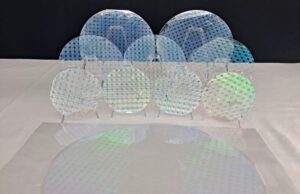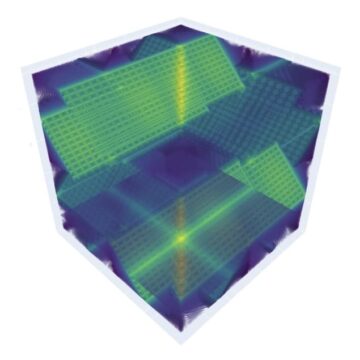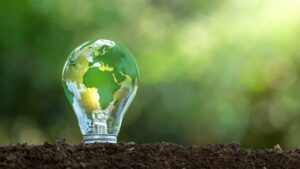Nobel laureate Stanley Whittingham and rising star Iryna Zenyuk explain how the meetings of The Electrochemical Society have helped them to advance their research and build their careers
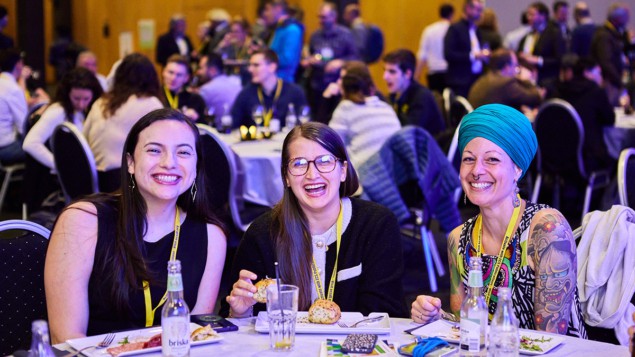
In today’s hyperconnected world, where Zoom meetings and remote working have become the norm, it can be easy to overlook the pivotal role that scientific meetings play in driving research progress. For Stanley Whittingham, who shared the 2019 Nobel Prize in Chemistry for his pioneering work on lithium-ion batteries in the 1970s, the meetings of The Electrochemical Society (ECS) were the quickest and most effective way to share and discuss the latest research results.
“There were two main groups working on lithium-ion batteries, my group at Esso [now Exxon] and the other at Bell Labs about 10 miles away,” says Whittingham, who joined the ECS as a post-doc at Stanford University in 1970 and now continues to investigate battery chemistry at Binghamton University, part of the State University of New York. “Everyone working in the field knew everyone else, and the ECS meetings were the logical place for us to meet, discuss our latest findings, and exchange ideas.”
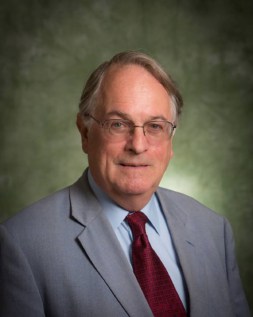
In those days, recalls Whittingham, it could take months for an article to appear in the Journal of the Electrochemical Society, the only publication at the time that would accept battery research. “All the correspondence with the editors and referees had to be sent by post, and once the article had been published it could take a while for the journal to reach people in remote parts of the world,” he says. “The meetings provided a faster way to share new research results and to find out what other people were working on.”
Even today, when online journals have allowed emerging research to be shared in a fraction of the time, the meetings offer a valuable opportunity for attendees to immerse themselves in the science and the progress being made. “At a meeting I can really pay attention to the presentations and think about the new work that is being reported,” says Iryna Zenyuk, who leads a group developing fuel-cell and hydrogen technologies at the University of California, Irvine. “Our days are so full that it’s easy to get distracted or interrupted, but a meeting allows me to absorb more information because I am fully present in the moment.”
Both Whittingham and Zenyuk play an active role in presenting work and organizing symposia at the ECS meetings, which are convened twice a year in the spring and fall. “The ECS is still the major society for battery scientists, and you can almost guarantee that you will find some interesting new research and meet some new people,” says Whittingham. “The field has grown so much, and many other conferences now cover battery research, but the core people still go to the ECS meetings.”
For Zenyuk, one unique aspect of the ECS events is the ability to connect with scientists and engineers from across the electrochemical community. “What I like about ECS meetings is the presence of people from industry, the national labs and the academic sector,” she says. “The meetings provide a focal point for people from different disciplines to come together, and for fundamental research scientists to connect with engineers and technologists who are more focused on applications. The field is defined by all these different sectors, and it’s very important to get a perspective from all of these key stakeholders.”
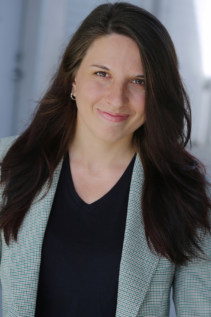
From her own personal experience, Zenyuk has found the meetings particularly useful for establishing new connections with industrial partners. “Several of our industrial collaborations have started through ECS meetings, since someone from the company might have seen my presentation and discovered that we have a capability that could be useful to them,” she says. “Among academics we already know what other people are working on, and we can approach each other if there is an opportunity to collaborate. But we don’t know if people from industry have a specific need because they are more inclined to keep their activities to themselves. We need to wait for them to come to us.”
Making new connections across the wider electrochemistry community is particularly important for younger scientists and engineers, with both Whittingham and Zenyuk encouraging their students to attend the meetings and present their work. “The younger people need to build links, which is easier to do in person than online,” says Whittingham. “Most research these days is done in teams, and the ECS provides a place for students and early-career researchers to get to know each other, find out what other people are working on, and establish collaborations and research projects.”
The meetings also provide a valuable opportunity for young electrochemists to share their experiences and understand how their work is contributing to the wider scientific endeavour. “Students work hard on their experiments, and sometimes it can feel tedious or difficult,” says Zenyuk. “Going to a meeting is really special for them because they realize that other people are struggling with the same problems. It helps them to feel part of something bigger and to gain more confidence in their own abilities.”
The ECS also provides plenty of incentives for students to get involved. Many of the society’s divisions and sections offer travel grants to undergraduates, graduate students and early-career researchers who are presenting their work, plus they support a number of student awards for poster presentations. Zenyuk, who won an award as a PhD student in 2013, is now responsible for organizing the poster session for the symposium on fuel cells and electrolysers, typically the largest one at the meeting.
“The symposium has 20 organizers who work together to arrange plenary sessions and invited talks, and to decide which of the hundreds of submissions will be offered a presentation slot,” she explains. “My focus is to arrange the poster session, including the judging of the student awards. That’s the fun part, because I received an award when I was a student and now I’m responsible for organizing the student competition.”
Presenting a poster brings plenty of other benefits too, as Zenyuk discovered from her experiences as a PhD student. “At the time I had two offers for post-doc positions,” she recalls. “I would tell people who people came to my poster about the offers, and they offered me advice that helped me to accept a position at the Lawrence Berkeley National Lab. My poster was an opportunity not just to showcase my work, but also to meet the community and learn from them.”
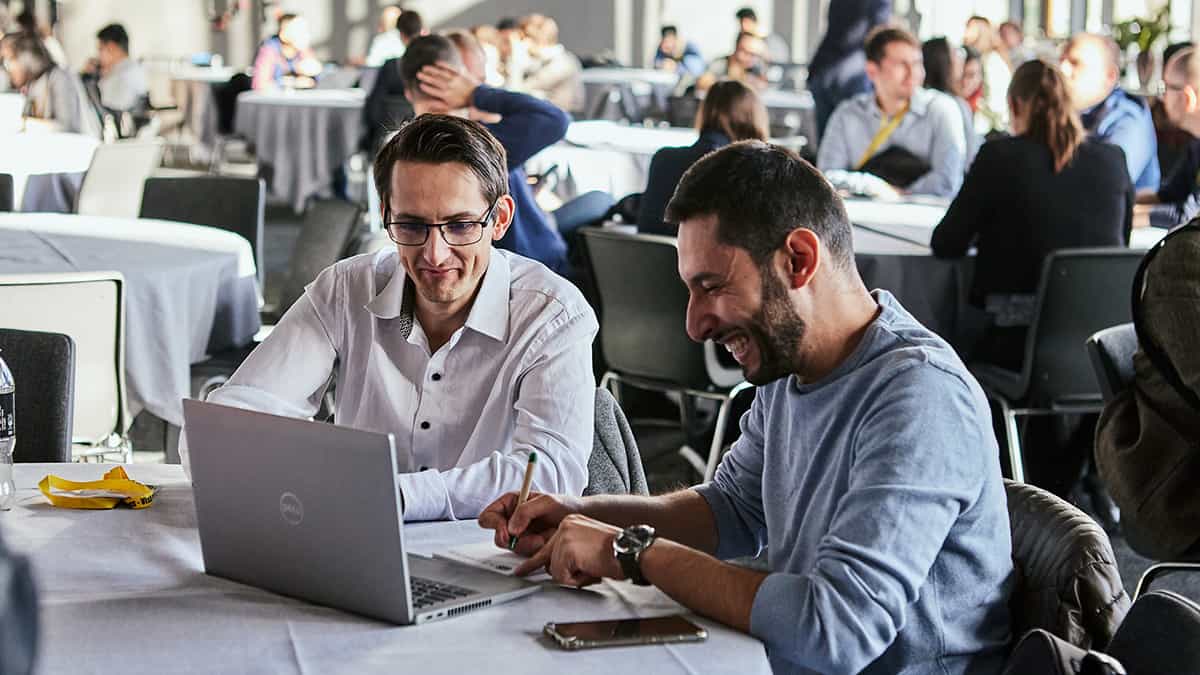
For Zenyuk, it is that human component of scientific meetings that sets them apart from other forms of scholarly communication. “Most of us are friends, we are part of the same community, and it’s good to catch up,” she says. “That face-to-face interaction makes it easier to meet new people as well as to reconnect with friends and colleagues.”
While Whittingham has witnessed a surge in battery research since his seminal work in the 1970s, he agrees that the ECS meetings continue to provide a vital focal point for the community to share results and build collaborations. “In the old days everyone working in the field could sit around a table for lunch, but now there might be three or four parallel sessions focused on batteries,” he says. “Even as the meetings have got larger the younger folks still get to know each other outside of the sessions, and make the connections that will support them throughout their career.”
- The 245th biannual meeting of The Electrochemical Society will be held on 26–30 May 2024 in San Francisco, US, while its 246th meeting will form part of PRiME 2024, a joint international meeting with the Electrochemical Society of Japan and the Korean Electrochemical Society that will be held in Honolulu, US, on 6–11 October 2024.
- SEO Powered Content & PR Distribution. Get Amplified Today.
- PlatoData.Network Vertical Generative Ai. Empower Yourself. Access Here.
- PlatoAiStream. Web3 Intelligence. Knowledge Amplified. Access Here.
- PlatoESG. Carbon, CleanTech, Energy, Environment, Solar, Waste Management. Access Here.
- PlatoHealth. Biotech and Clinical Trials Intelligence. Access Here.
- Source: https://physicsworld.com/a/scientific-meetings-catalyse-research-success/
- :has
- :is
- :not
- :where
- $UP
- 10
- 20
- 2013
- 2019
- 2024
- a
- abilities
- ability
- About
- academic
- academics
- Accept
- across
- active
- activities
- advance
- advice
- All
- allowed
- allows
- almost
- already
- also
- am
- an
- and
- apart
- appear
- applications
- approach
- ARE
- around
- article
- AS
- aspect
- At
- attend
- attendees
- attention
- award
- awards
- away
- batteries
- battery
- BE
- because
- become
- been
- being
- Bell
- benefits
- Berkeley
- bigger
- both
- Brings
- build
- but
- by
- california
- came
- CAN
- capability
- Career
- catalyse
- Catch
- Cells
- chemistry
- click
- collaborate
- collaborations
- colleagues
- come
- Communication
- community
- company
- competition
- component
- conferences
- confidence
- Connect
- Connections
- continue
- continues
- contributing
- Core
- could
- cover
- Days
- decide
- defined
- developing
- different
- difficult
- disciplines
- discovered
- discuss
- do
- done
- Dont
- driving
- each
- easier
- easy
- editors
- Effective
- else
- emerging
- enable
- encouraging
- Engineers
- establish
- established
- establishing
- events
- everyone
- exchange
- experience
- Experiences
- experiments
- Explain
- Explains
- Fall
- faster
- feel
- field
- Find
- findings
- focal
- Focus
- focused
- For
- form
- forms
- found
- four
- fraction
- Francisco
- friends
- from
- Fuel
- fuel cells
- full
- fully
- fun
- fundamental
- Gain
- get
- Go
- good
- got
- graduate
- grants
- Group
- Group’s
- grown
- guarantee
- had
- Hard
- Have
- he
- Held
- helped
- helps
- her
- his
- How
- HTTPS
- human
- Hundreds
- hydrogen
- hyperconnected
- i
- ideas
- identify
- if
- image
- Immerse
- important
- in
- Incentives
- Inclined
- Including
- industrial
- industry
- information
- interaction
- interesting
- International
- interrupted
- investigate
- invited
- involved
- issue
- IT
- ITS
- Japan
- joined
- joint
- journal
- jpg
- just
- Keep
- Key
- Know
- Korean
- lab
- Labs
- larger
- largest
- latest
- lawrence
- Leads
- LEARN
- like
- links
- logical
- lunch
- made
- Main
- major
- make
- MAKES
- many
- max-width
- May 2024
- May..
- me
- Meet
- meeting
- meetings
- might
- moment
- months
- more
- most
- much
- my
- National
- Need
- New
- New York
- nobel prize
- now
- number
- october
- of
- offer
- offered
- Offers
- Old
- on
- once
- ONE
- online
- only
- open
- opportunities
- Opportunity
- or
- organizers
- organizing
- Other
- our
- out
- outside
- over
- own
- Parallel
- part
- particularly
- partners
- parts
- Pay
- People
- person
- personal
- perspective
- phd
- Physics
- Physics World
- Pioneering
- pivotal
- Place
- plato
- Plato Data Intelligence
- PlatoData
- Play
- played
- Plenty
- plus
- Point
- position
- positions
- Post
- presence
- present
- presentation
- Presentations
- prize
- problems
- Progress
- projects
- provide
- provided
- provides
- Publication
- published
- quickest
- reach
- realize
- really
- received
- reconnect
- remote
- remote working
- Reported
- research
- researchers
- responsible
- Results
- rising
- Role
- same
- San
- San Francisco
- says
- Science
- scientific
- scientists
- sections
- sector
- Sectors
- seen
- sent
- session
- sessions
- Sets
- several
- Share
- shared
- she
- showcase
- showcasing
- since
- sit
- Sites
- slot
- So
- Society
- some
- Someone
- something
- sometimes
- special
- specific
- Sponsored
- spring
- stakeholders
- stanford
- Stanford university
- Star
- started
- State
- Still
- Struggling
- Student
- Students
- Submissions
- success
- support
- surge
- Symposium
- table
- Take
- Talks
- teams
- Technologies
- technologists
- tell
- than
- that
- The
- The State
- the world
- their
- Them
- themselves
- There.
- These
- they
- think
- those
- three
- Through
- throughout
- thumbnail
- time
- to
- today
- today’s
- together
- too
- travel
- Twice
- two
- typically
- understand
- unique
- university
- University of California
- us
- Valuable
- very
- vital
- wait
- was
- Way..
- we
- WELL
- were
- What
- when
- which
- while
- WHO
- wider
- will
- with
- witnessed
- Won
- Work
- work together
- working
- world
- would
- year
- york
- You
- young
- Younger
- zephyrnet
- zoom






